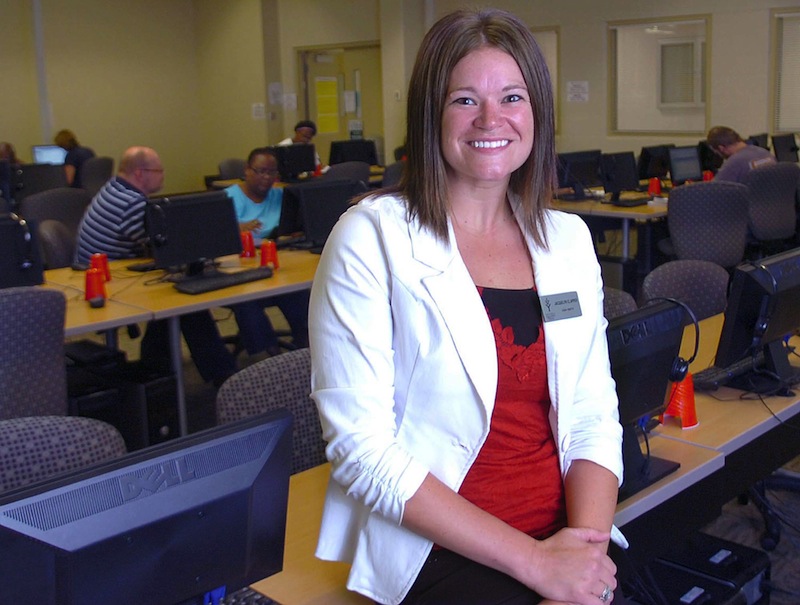In 2010, I was awarded a Fulbright Scholarship to teach poetry in Hyderabad, India. The honor was a mark of distinction for Tufts as well as a thrilling opportunity for me.
To my surprise, accepting the Fulbright resulted in my being technically terminated from my job as poetry lecturer. I expected to return to Tufts – however, as a non-tenured instructor who works on a yearly contract, being in India for a semester meant that I was no longer an employee.

Just last week, I joined my colleagues at Tufts University in voting to form a union with Adjunct Action, a project of the Service Employees International Union.
For the past 18 years, my teaching days have been filled with classroom discussion with undergraduate students who are quick, thoughtful and engaged; and I’m eager and have often played a role in my department, organizing poetry readings, and assisting in senior poetry manuscript preparation and evaluation. I have wonderful conversations about individual students’ poetry that feel mutually enriching. I relish much of my job.
Unlike many universities, Tufts is a good place to be a lecturer. We have health insurance, academic freedom, office space, and support. Tufts lecturers have one-year contracts, rather than by the semester. Compared to the national average of about $3,000 a class, Tufts instructors are also better compensated (though I still made less that $25,000 last year teaching four courses.)
Part-time college instructors now represent 50 percent of all teaching faculty at degree-granting institutions. Many of us lack job security, benefits and struggle to get by on astonishingly low wages. Not investing in lecturers whose main responsibility is teaching our country’s future leaders and citizens is misguided as well as unfair to lecturers as workers, and to the working families who are paying escalating amounts for college degrees.
In my department the lecturers outnumber the full-time faculty three to one, however we are not allowed to participate in department meetings, to help determine departmental priorities, or even to know what they are. Although at Tufts we teach the majority of students, we are not accorded the professional support full-time and tenure track faculty receive. Conferences support and professional development opportunities are not available to lecturers.
When I started teaching, I assumed and treasured the priorities I thought fundamental to an institution of higher learning. In retrospect, I lived in a happy cocoon, pleased to engage with each new poetry class, delighted with my colleagues, very glad of our benefits, and naively assuming that integrity would prevail at all levels of the university.
My illusions began to unravel when I discovered a pay-scale discrepancy between lecturers doing equivalent work. I had assumed that the school operated on principles of transparent fairness. When I brought up my discovery I was warned. “Be careful. You know, you can be replaced.” It was a chilling encounter.
The threat, implicit as well as explicit, has served to keep my colleagues and me in thrall. It created an atmosphere in which people were anxious, unwilling to speak up for justice, and expected only to do the job and keep their head down. It fostered secrecy and the personal isolation of adjuncts.
Our need to organize became even more apparent when a few years ago, the annual “merit raises” we’d received since I started teaching, were withdrawn. No explanation was offered, and no future reinstatement was suggested. This was new evidence of the ease with which benefits we’d counted on could be removed. The lecturers in my department and others started to compare notes, and began to understand the contingency of our working conditions.
Emerging from our isolation at Tufts into a sense of unity with my peers once we began the process of union organizing has been life enhancing. Our election last week resulted in a sixty-nine percent decisive victory: a Union of Part-time Faculty at Tufts.
Our effort to form a union at Tufts is part of a growing movement of adjunct faculty who are coming together to improve the quality of education. Lecturers at Bentley University, Northeastern University and colleges and universities on the west coast are on their way to joining us. The time has come for our institutions to restore their commitment to and investment in the core mission of instruction.
As we prepare to sit at the bargaining table with Tufts administrators, I look forward to advocating standards that dignify the important work that lecturers perform. I look ahead to a time when lecturers are no longer isolated, lucky add-ons, but participants in the academic community, and an integral part of the broader workforce. I celebrate a future in which we take responsibility for ourselves as vital contributors to higher education in America, deserving of work conditions that reflect that reality.
Rebecca Kaiser Gibson has had work published in Agni, The Antigonish Review, The Boston Phoenix, Field, The Greensboro Review, The Harvard Review, Margie, The Northwest Review, Pleiades, The Fossil, and Slate. She was also selected as a Fulbright Scholar to teach poetry at the International Institute of Information Technology in Hyderabad, India, 2011. She has an MA in creative writing from Boston University as well as an MAT in directing theatre from Columbia Teachers College, and an MA in directing from the University of Pittsburgh. She teaches poetry and writing at Tufts University.
[Photo credit: In this July 19, 2012 photo, Ivy Tech Community College-Northeast adjunct faculty member Jacquelyn Clapper pauses in a computer lab at the school in Fort Wayne, Ind. Increasingly, colleges across the country are relying on part-time faculty members like Clapper to teach a significant amount of their course loads. (AP Photo/The Journal Gazette, Samuel Hoffman)]









